
Choreutidae, or metalmark moths, are a family of insects in the lepidopteran order whose relationships have been long disputed. It was placed previously in the superfamily Yponomeutoidea in family Glyphipterigidae and in superfamily Sesioidea. It is now considered to represent its own superfamily. The relationship of the family to the other lineages in the group "Apoditrysia" need a new assessment, especially with new molecular data.

Anthophila fabriciana, also known as the common nettle-tap, is a moth of the family Choreutidae first described in 1767 by Carl Linnaeus. The moth can be found flying around stinging nettles during the day.

Prochoreutis myllerana, Miller’s nettle-tap or small metal-mark, is a moth of the family Choreutidae found in Asia and Europe. Miller's nettle-tap was first described by Johan Christian Fabricius in 1794 from a specimen found in Sweden.
Asterivora homotypa is a species of moth of the family Choreutidae. It is found in subalpine and alpine habitats in Australia. Adult moths have brown forewings, each with various white markings including two vague transverse white speckled bars. Their hindwings are brown, each with a vague white wiggly submarginal line. Their wingspan length is approximately 1 centimetre.

Prochoreutis sestediana, also knowns as the silver-dot metal-mark is a moth of the family Choreutidae found in Asia and Europe. It was first described by Johan Christian Fabricius in 1776 from a specimen found in Kiel, Germany.
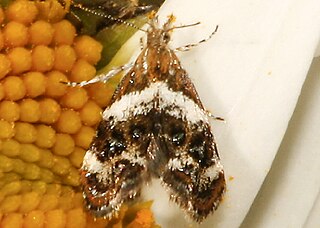
Tebenna onustana is a moth of the family Choreutidae. It is known from Ontario, Quebec and the north-eastern part of the United States.

Tebenna gnaphaliella, the everlasting tebenna moth, is a moth of the family Choreutidae. It is found from Florida to California and north at least to New Hampshire.

Tebenna silphiella, the rosinweed moth, is a moth of the family Choreutidae. It is known from the central part of the United States, including Wisconsin, Illinois and Colorado. The habitat consists of prairies and meadows.
Anthophila alpinella is a moth of the family Choreutidae. It is found from the north-eastern United States and southern Canada to British Columbia, the Rocky Mountains, and along the Pacific Coast to Marin County, California.
Prochoreutis extrincicella is a moth of the family Choreutidae. It is found in the United States, including Illinois, Maryland and Kentucky.

Asterivora is a genus of moths in the family Choreutidae. Asterivora was described by J. S. Dugdale in 1979. The type species is Asterivora combinatana.
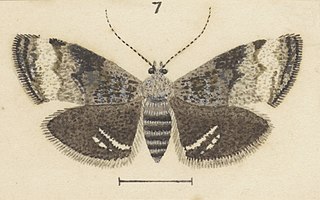
Asterivora albifasciata is a species of moth in the family Choreutidae. It is endemic to New Zealand and has been observed on both the North and South Islands. The adults of this species are on the wing in December and January. Larvae of this species have been raised on Celmisia brevifolia.

Asterivora fasciata is a species of moth in the family Choreutidae. It is endemic to New Zealand and has been found at Arthur's Pass. The larvae of this species have been reared on Celmisia densiflora and adults are on the wing in January.
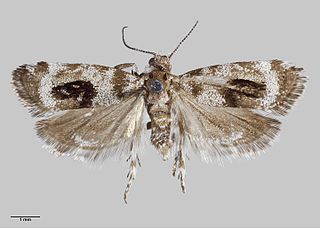
Asterivora inspoliata is a species of moth in the family Choreutidae. It is endemic to New Zealand and has been found in the southern parts of the South Island. Adults are on the wing in December and January.

Asterivora nivescens is a species of moth in the family Choreutidae. It is endemic to New Zealand and has been observed in Nelson. This species inhabits native herbage on mountain sides. Adults of this species are on the wing in January.
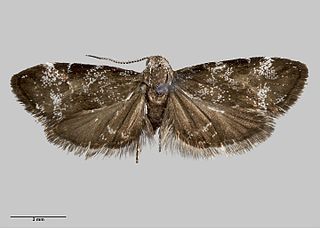
Asterivora tristis is a species of moth in the family Choreutidae. It is endemic to New Zealand and has been observed in Tongariro National Park. Adults of this species are on the wing in January.
Choreutis dryodora is a species of moth in the family Choreutidae. It is found in Mozambique.
Choreutis irridens is a species of moth of the family Choreutidae. It is found in Mozambique.
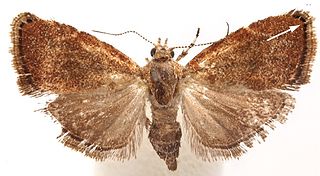
Niveas is a genus of moths in the family Choreutidae.

Niveas kone is a moth of the family Choreutidae. It is found in Papua New Guinea and on the Solomon Islands.















